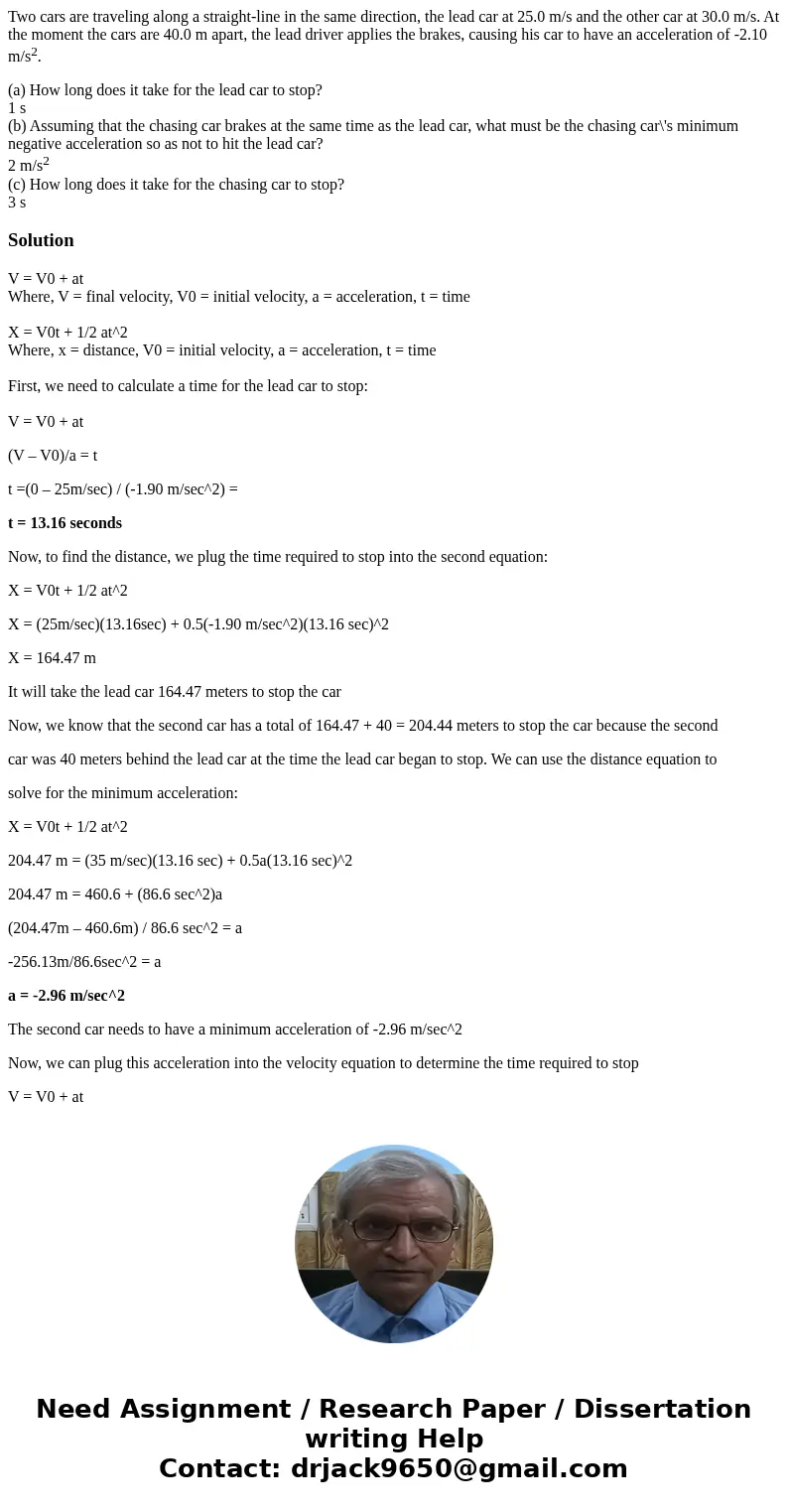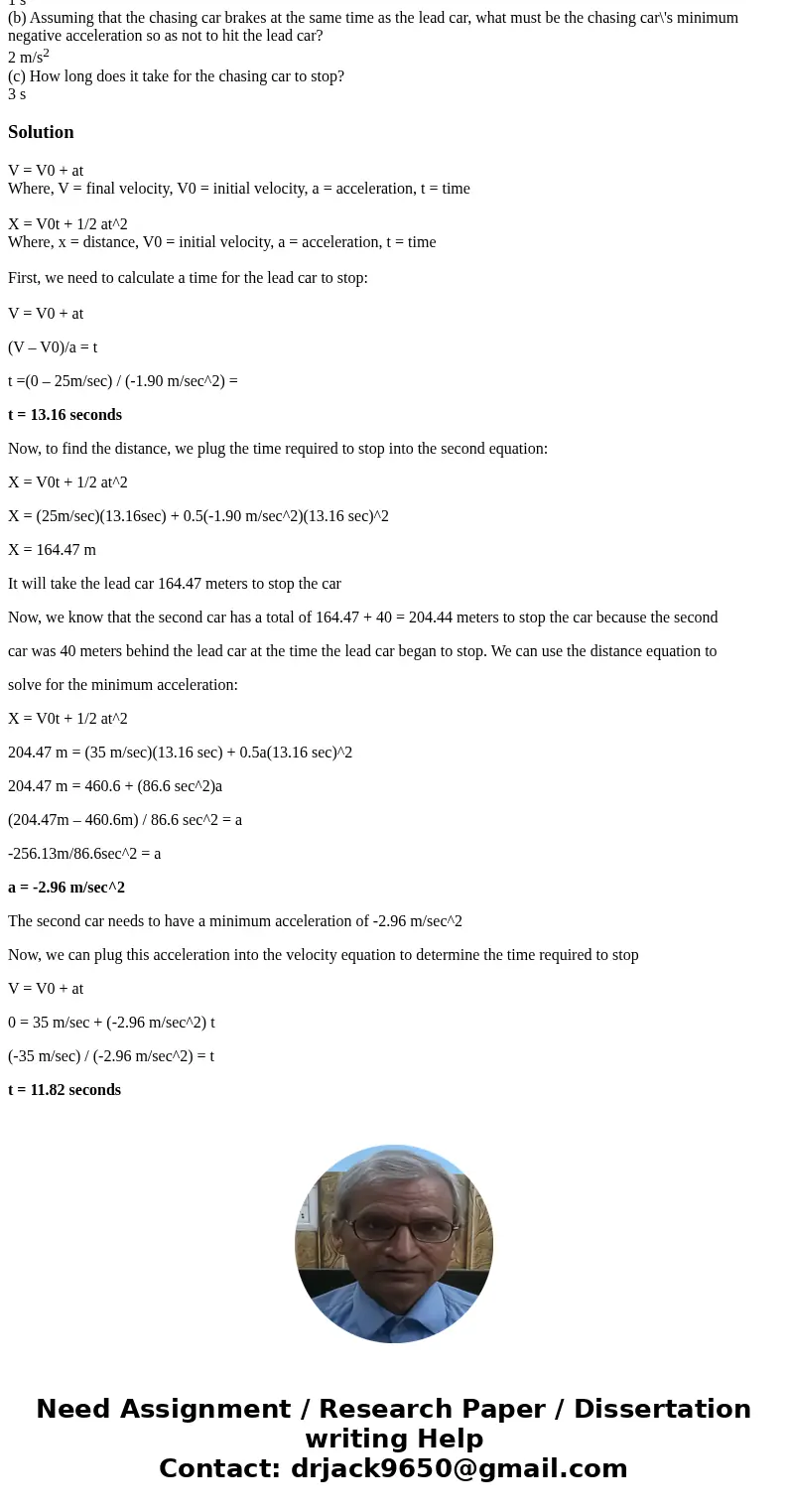Two cars are traveling along a straightline in the same dire
Two cars are traveling along a straight-line in the same direction, the lead car at 25.0 m/s and the other car at 30.0 m/s. At the moment the cars are 40.0 m apart, the lead driver applies the brakes, causing his car to have an acceleration of -2.10 m/s2.
(a) How long does it take for the lead car to stop?
1 s
(b) Assuming that the chasing car brakes at the same time as the lead car, what must be the chasing car\'s minimum negative acceleration so as not to hit the lead car?
2 m/s2
(c) How long does it take for the chasing car to stop?
3 s
Solution
V = V0 + at
Where, V = final velocity, V0 = initial velocity, a = acceleration, t = time
X = V0t + 1/2 at^2
Where, x = distance, V0 = initial velocity, a = acceleration, t = time
First, we need to calculate a time for the lead car to stop:
V = V0 + at
(V – V0)/a = t
t =(0 – 25m/sec) / (-1.90 m/sec^2) =
t = 13.16 seconds
Now, to find the distance, we plug the time required to stop into the second equation:
X = V0t + 1/2 at^2
X = (25m/sec)(13.16sec) + 0.5(-1.90 m/sec^2)(13.16 sec)^2
X = 164.47 m
It will take the lead car 164.47 meters to stop the car
Now, we know that the second car has a total of 164.47 + 40 = 204.44 meters to stop the car because the second
car was 40 meters behind the lead car at the time the lead car began to stop. We can use the distance equation to
solve for the minimum acceleration:
X = V0t + 1/2 at^2
204.47 m = (35 m/sec)(13.16 sec) + 0.5a(13.16 sec)^2
204.47 m = 460.6 + (86.6 sec^2)a
(204.47m – 460.6m) / 86.6 sec^2 = a
-256.13m/86.6sec^2 = a
a = -2.96 m/sec^2
The second car needs to have a minimum acceleration of -2.96 m/sec^2
Now, we can plug this acceleration into the velocity equation to determine the time required to stop
V = V0 + at
0 = 35 m/sec + (-2.96 m/sec^2) t
(-35 m/sec) / (-2.96 m/sec^2) = t
t = 11.82 seconds


 Homework Sourse
Homework Sourse